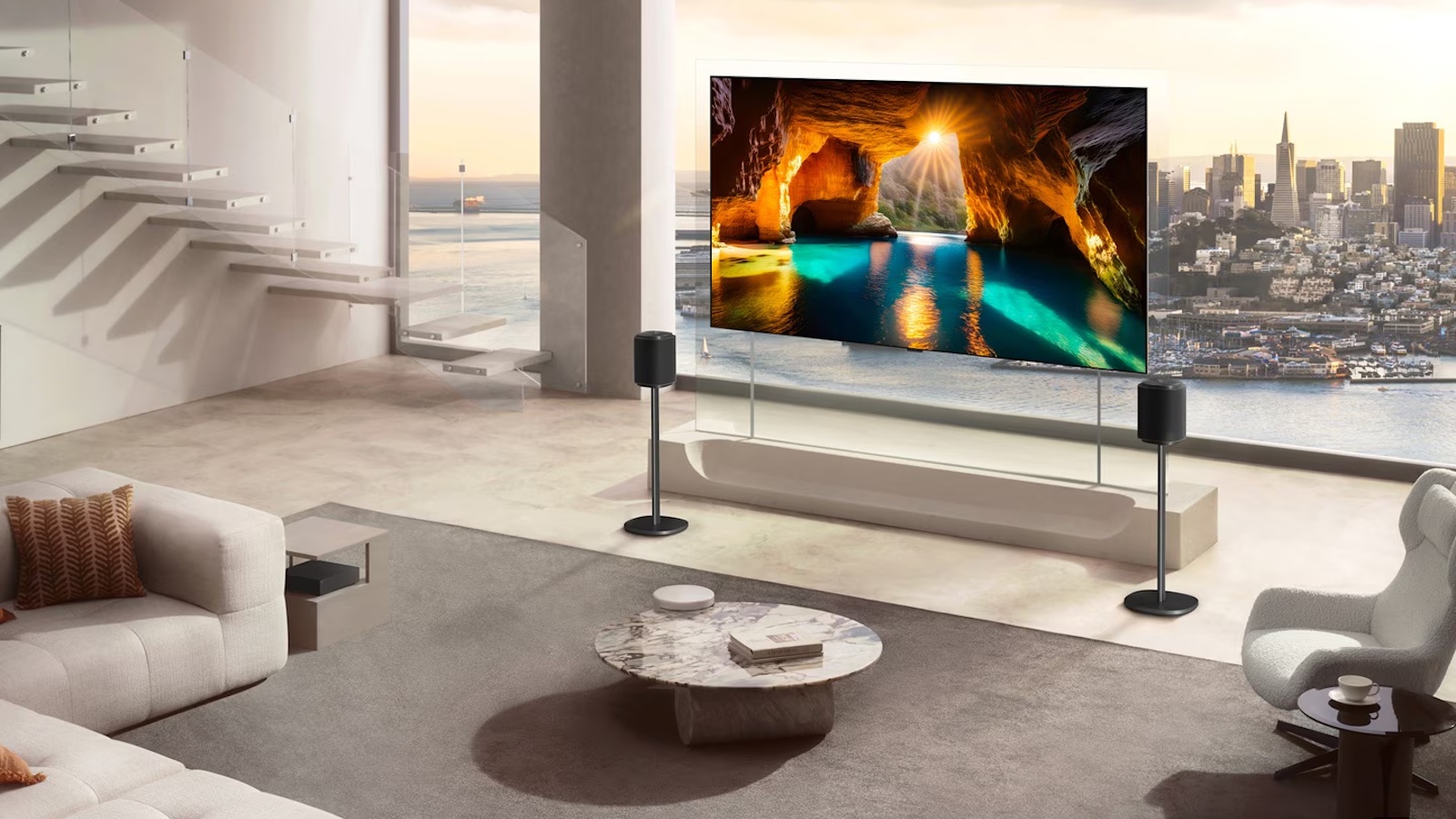What Hi-Fi? Verdict
The Audiolab 7000N is a solid, well-balanced performer, even if it faces strong competition at this level.
Pros
- +
Uncluttered sound presentation
- +
Solid, well-formed bass
- +
Well-made and generally easy to use
Cons
- -
Not the most exciting listen
- -
No Bluetooth or DSD file support
- -
DTS Play-Fi app starting to feel clunky
Why you can trust What Hi-Fi?
Audiolab has an impressive track record with regard to well-priced music streamers, stereo amps and other wallet-friendly hi-fi designed to give musical satisfaction for a sensible price. The new Audiolab 7000N sits relatively low down on the network streamer price scale, no bad thing considering how impressed we’ve been with the refinement and insight of Audiolab’s current entry offering, the 6000N Play. This budget streamer gained a What Hi-Fi? Award a few years ago (tested at £449 / $600), so we’re hopeful a similar trick can be repeated with the slightly more costly 7000N.
Audiolab’s 7000N Play network streamer arrives as part of the new 7000 range consisting of the 7000A amplifier, the 7000CDT CD transport and the streamer itself, and while the brand’s impressive lineage and pedigree give us reason to be hopeful regarding the new model, there’s certainly tough competition at this level courtesy of the Award-winning Bluesound Node (2021) and the recently-introduced Cambridge Audio MXN10.
Build & design
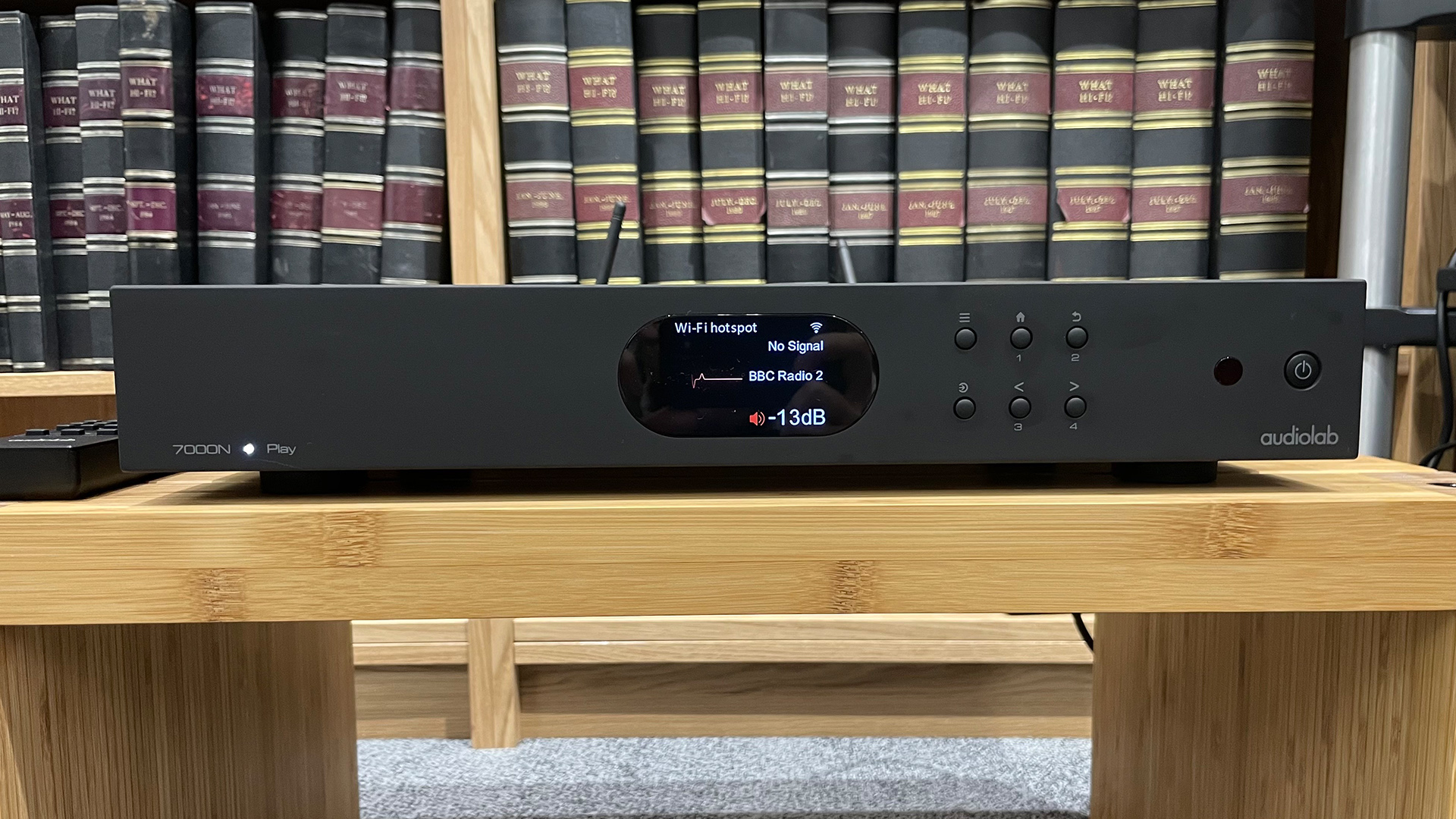
If you’re choosing the 7000N Play music streamer over the 6000N, you’ll probably want to know what you’re getting over the cheaper model. Like the 6000N, the 7000N comes equipped with optical and coaxial digital outputs and a pair of RCA line-level outputs, and you can connect to your home network using wi-fi or wired ethernet.
The 7000N Play is kitted out with a newer ESS Sabre ES9038Q2M DAC, a step up on the 6000A’s ES9018K2M. You also now get AirPlay 2, an updated version of the Play-Fi streaming module, and enhanced power supply circuitry.
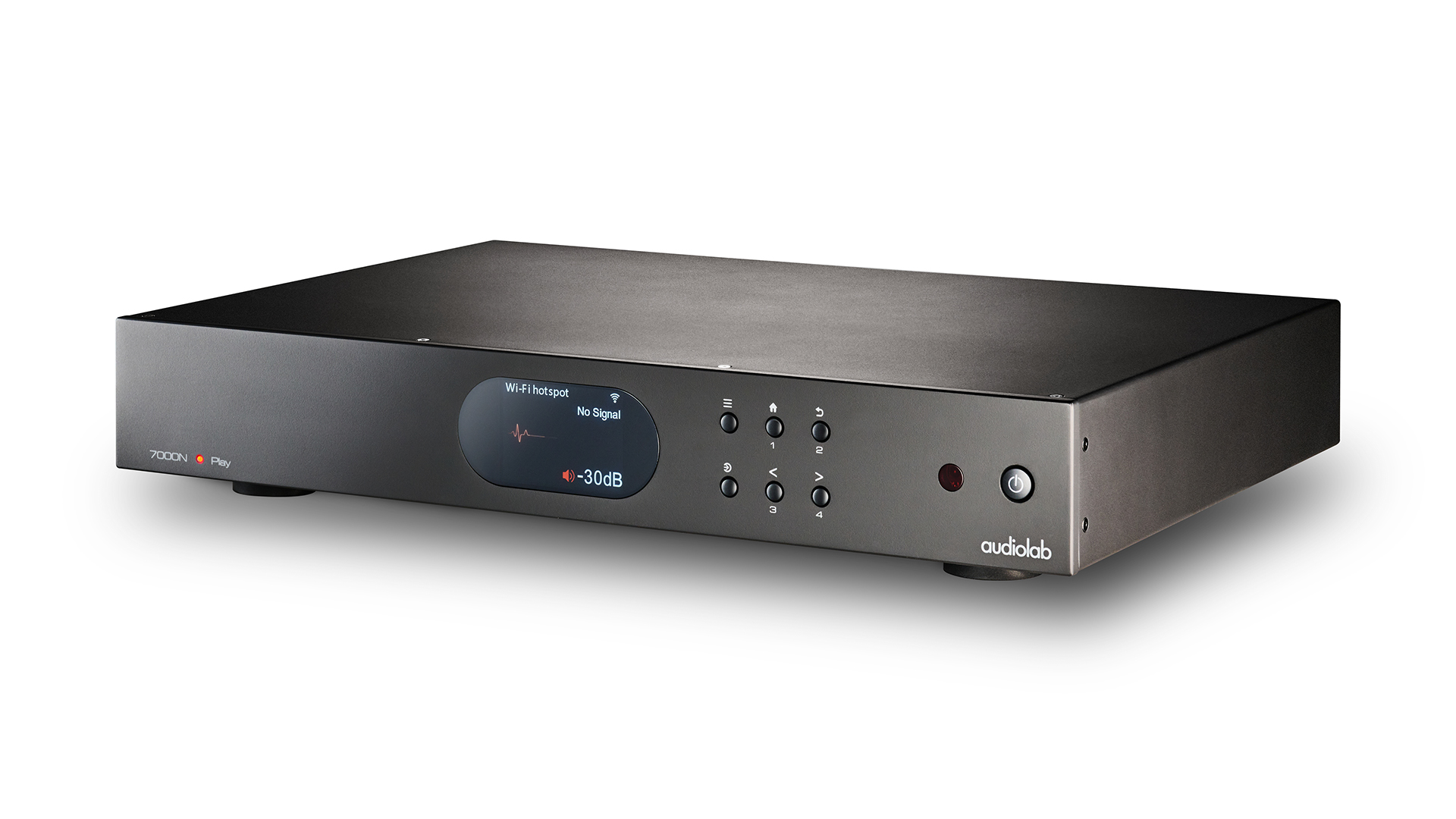
Sources AirPlay 2, Amazon Music, Spotify, Tidal, Napster, Internet Radio, Deezer, Qobuz
Network Wi-fi, ethernet
Inputs N/A
Outputs Coaxial, optical, RCA line output
Headphone output? No
Max file resolution 24-bit/192kHz
Dimensions (hwd) 7.8 x 44.4 x 34cm
Weight 5.0kg
Aesthetically, the 7000N Play doesn’t exactly take many risks. It’s a broad, rectangular unit without many flourishes or add-ons, although you do get a full-colour display with a Graphical User Interface so that you can control and change things like brightness, display time-out, 12V trigger function and language.
There’s a volume control accessible through the remote which you can use either with an integrated amp or a pre-power but which can also be directly plugged into a pair of active speakers for a more minimalist set-up. The supplied remote lets you control volume, track skipping, standby and menu access, as well as on-the-fly model selection if you also own the 7000A and 7000CDT CD transport.
Features
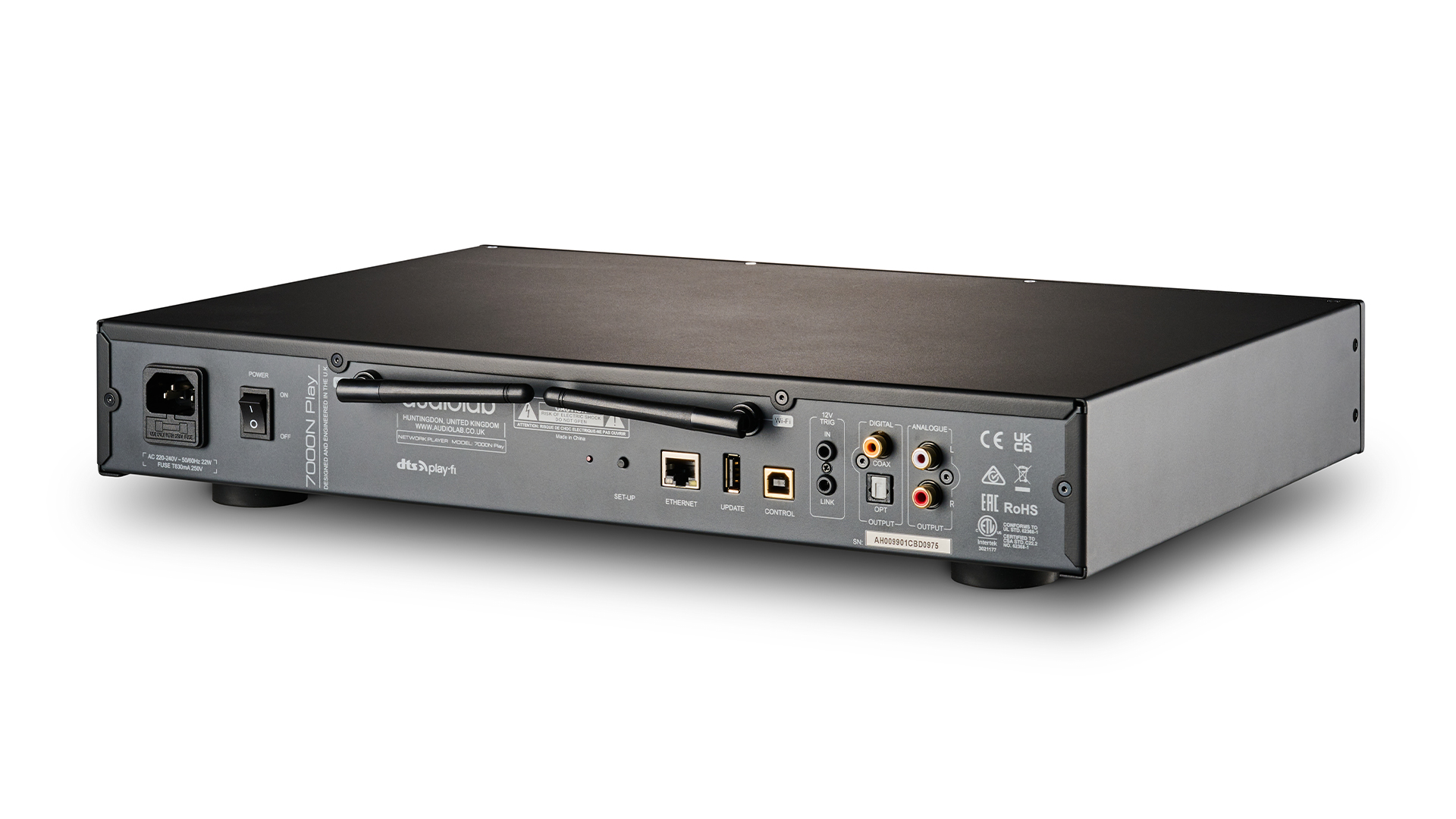
As with the older 6000N, this new streamer uses the DTS Play-Fi app to access a variety of music streaming sources including Spotify, Deezer, Tidal, Qobuz and SiriusXM, as well as a variety of internet radio stations. The addition of AirPlay 2 is welcome, while it can play music from any connected NAS devices on the same network. The app works reasonably well in some respects, but we find it to not be as responsive or likeable as other platforms, while the presentation of usually pleasing services like Tidal isn’t as detailed, responsive or intuitive when used through the Play-Fi portal. The tendency to drop out of your selected music service for no good reason, meanwhile, adds to our misgivings.
The latest hi-fi, home cinema and tech news, reviews, buying advice and deals, direct to your inbox.
The 7000N Play is happy to play hi-res PCM files up to 24-bit/192kHz but surprisingly doesn’t support DSD files, something which we find to be rather strange. While this may not be a deal breaker for most, it feels like a striking omission for a newly introduced streamer of its kind. In comparison, the newer (and cheaper) Cambridge Audio MXN10 can play up to DSD512 files and offers Bluetooth streaming, too.
The 7000N Play gives you the option to tweak your sound according to your preference by offering you a choice of filter settings. For those who like their music to be played just so, the streamer’s digital filter can refine the audio presentation depending on your preference. There are five options from which to choose, and when working within our particular set-up, we found Linear (Slow) to be the best for our tastes.
Sound
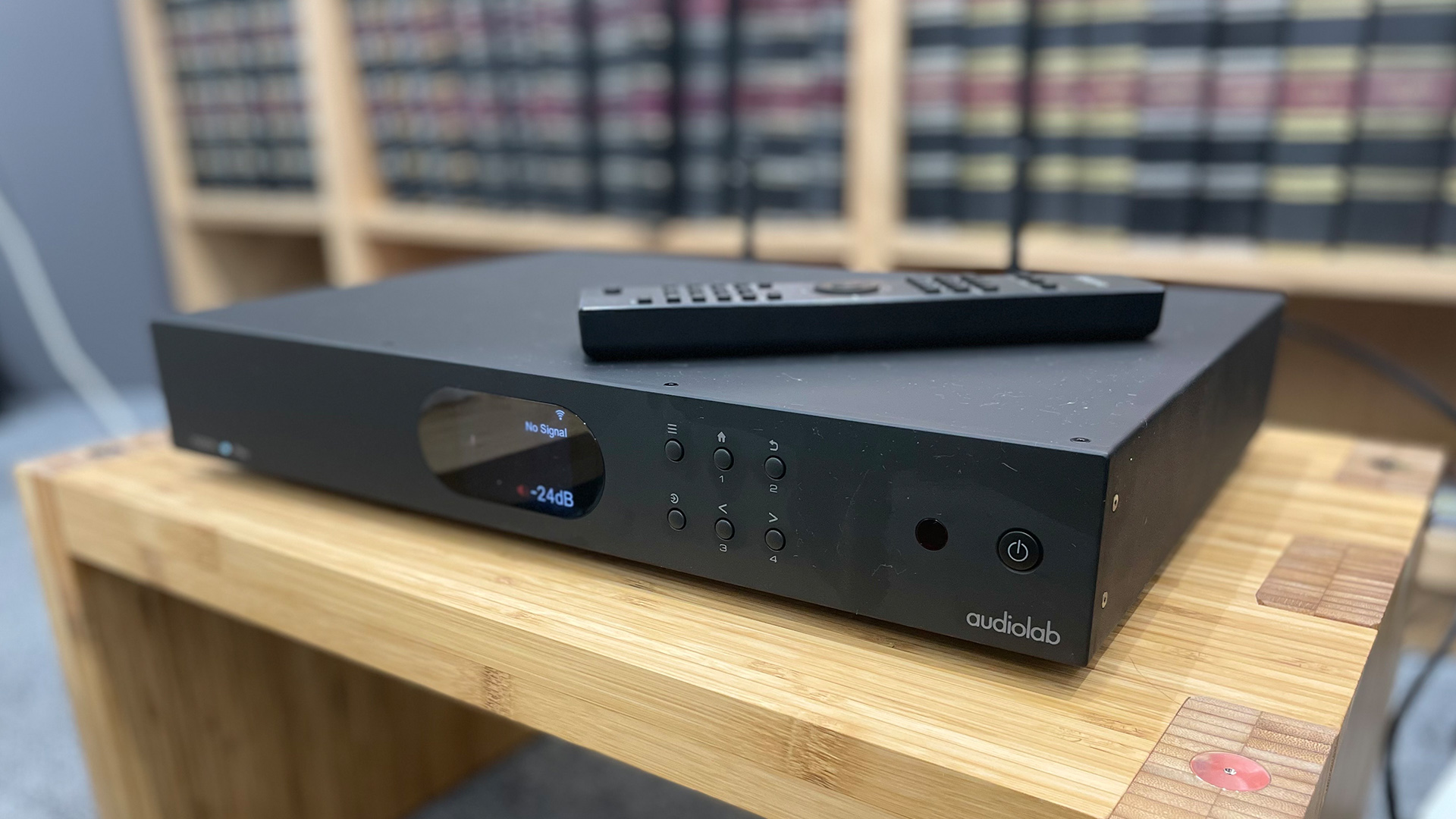
During testing, we use the Audiolab streamer with a PMC Cor amplifier hooked up to our versatile and proficient Epos ES14N reference speakers, all the while comparing and contrasting its performance with that of two five-star rivals, the Bluesound Node and the Cambridge Audio MXN10.
First up is Havana courtesy of Camila Cabello, a good test to see how the latest Audiolab deals with Cabello’s sultry, sometimes overdone upper-range vocals before the harder, heavier rap passages really kick in. You certainly receive a neutral, well-spread sound from the 7000N, and what’s really strong here is the presentation of the instruments and vocals on display – close your eyes and the pop star’s voice takes centre stage as accompanying instruments are placed neatly around.
Havana’s signature piano sound is at the track’s core, and although the 7000N offers a well-ordered listen, it can be beaten in terms of revealing that distinctively honky-tonk piano tone and the rhythm that it brings to the arrangement. In terms of feeling the Latin rhythm at the song’s heart, it seems the 7000N’s watchword is ‘restraint’.
We select Nick Cave and Warren Ellis’ heartrending Song For Bob next, listening to see how much response we get from such an expressive song that conveys emotions that evolve to encompass melancholy and sadness, through to guilt and regret. The 7000N certainly strives to reveal such emotions and mostly it does a truly respectable job, especially as the track begins to tug the heartstrings and the power and weight of the bass are fully unveiled within a broad, pleasing soundscape.
Although we’re pleased by the sense of scope and space it delivers, we’d like to see a richer texture and timbre from the instruments involved, especially when the brooding strings kick in and set the arrangement’s real emotional tone.
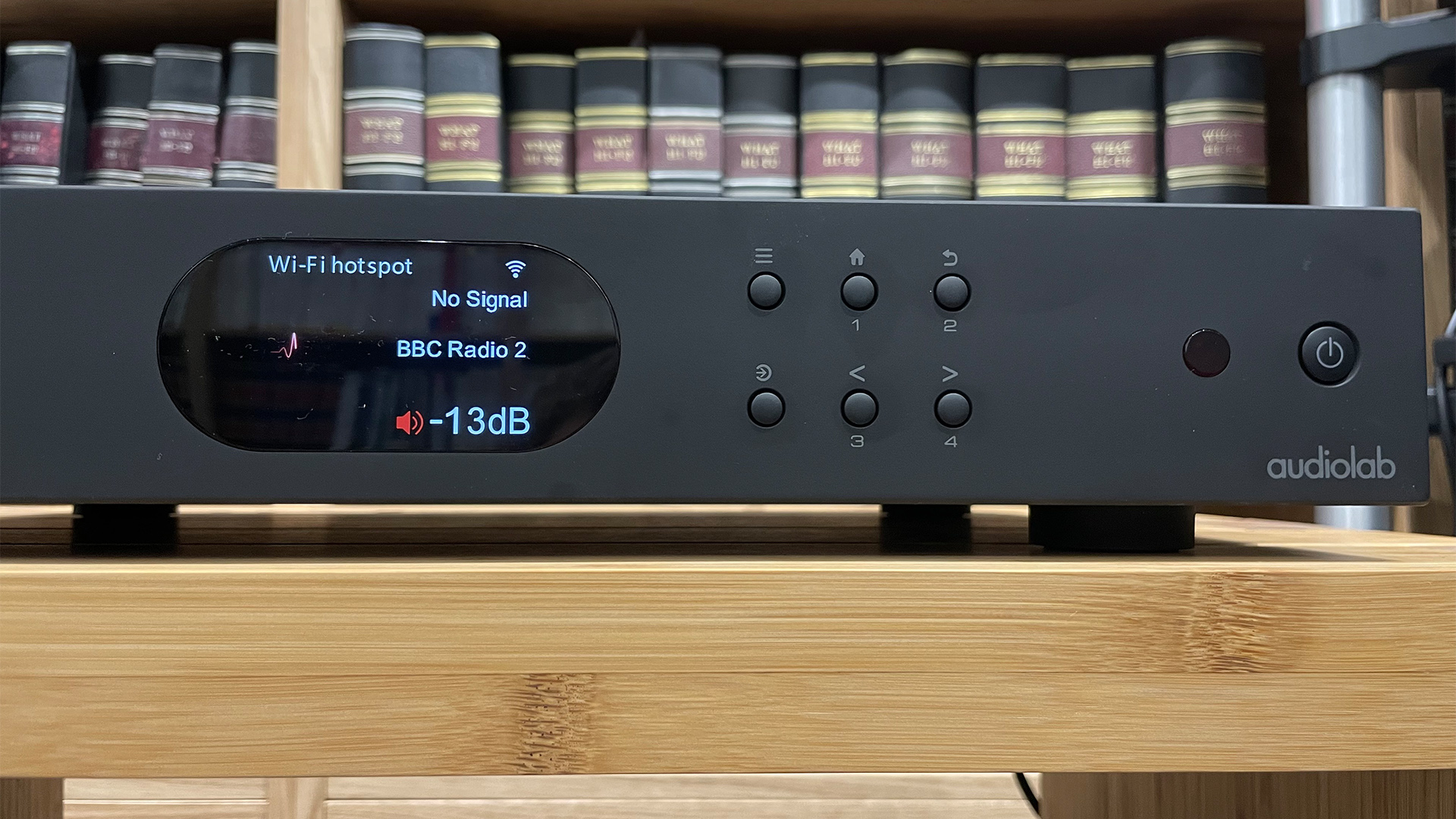
Between The Bars serves as a litmus test for how the 7000N conveys the intimacy of Elliot Smith’s almost confessional vocal performance, as well as how it manages to draw out the nuances and timbres of the acoustic guitar. It’s a fine rendition but not a perfect one, and we can’t help but notice that Smith’s delivery with the 7000N occasionally feels rote or routine rather than being as intimate and truly revelatory as we’d ideally like, especially when compared with the Cambridge MXN10’s more musically adept interpretation, which feels just a touch more intimate.
As becomes clear during testing, the danger with the Audiolab is that it can tend to give everything a rather uniform, almost monochromatic sound presentation in which all music is tainted with a similar palette. There’s no question that things are well organised, well separated and intuitively placed, although wearing our hyper-critical hat would have us ask for just a little more subtlety and individual timbre reflected from each instrument. Compared with the current class leaders, then, the Audiolab doesn’t quite bring the same levels of texture, nuance or dynamic interest to the table.
Verdict
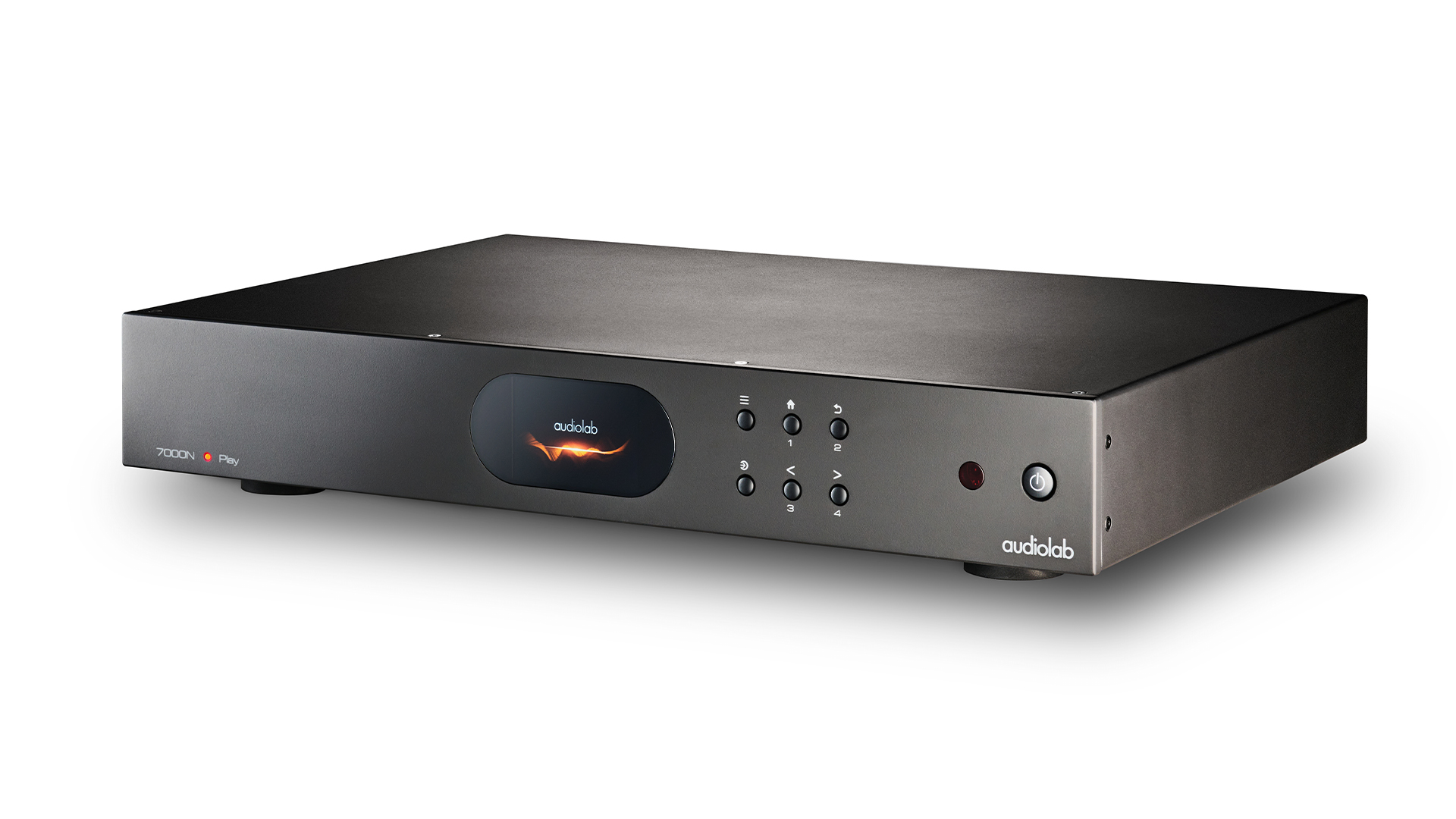
The Audiolab 7000N doesn’t bowl you over with a particularly peppy or in-your-face presentational style, but what you do get is a well-ordered, uncluttered sound that provides a pleasing listen, with a profile that’s transparent enough to show up most of the detail from your music with ease.
The issue, however, is that there’s strong competition at this end of the market, and while many will be keen on the 7000N’s spacious and revealing character, its competitors demonstrably offer more dynamism, energy and rhythmic drive. If those are the qualities you prioritise, Audiolab’s network streamer may not quite be to your taste.
SCORES
- Sound 4
- Features 4
- Build 5
MORE:
Read our review of the five-star Cambridge Audio MXN10
Best music streamers: upgrade to a wireless system
Read our Award-winning Bluesound Node (2021) review
What Hi-Fi?, founded in 1976, is the world's leading independent guide to buying and owning hi-fi and home entertainment products. Our comprehensive tests help you buy the very best for your money, with our advice sections giving you step-by-step information on how to get even more from your music and movies. Everything is tested by our dedicated team of in-house reviewers in our custom-built test rooms in London, Reading and Bath. Our coveted five-star rating and Awards are recognised all over the world as the ultimate seal of approval, so you can buy with absolute confidence.

